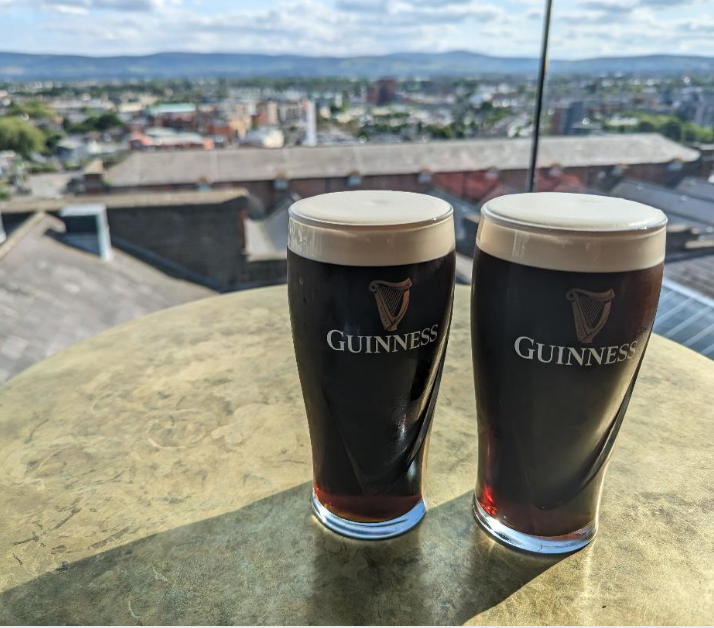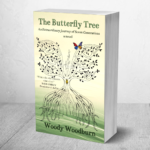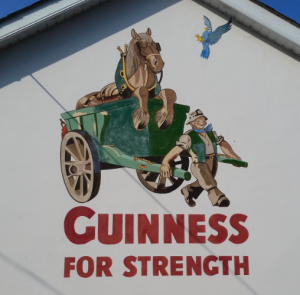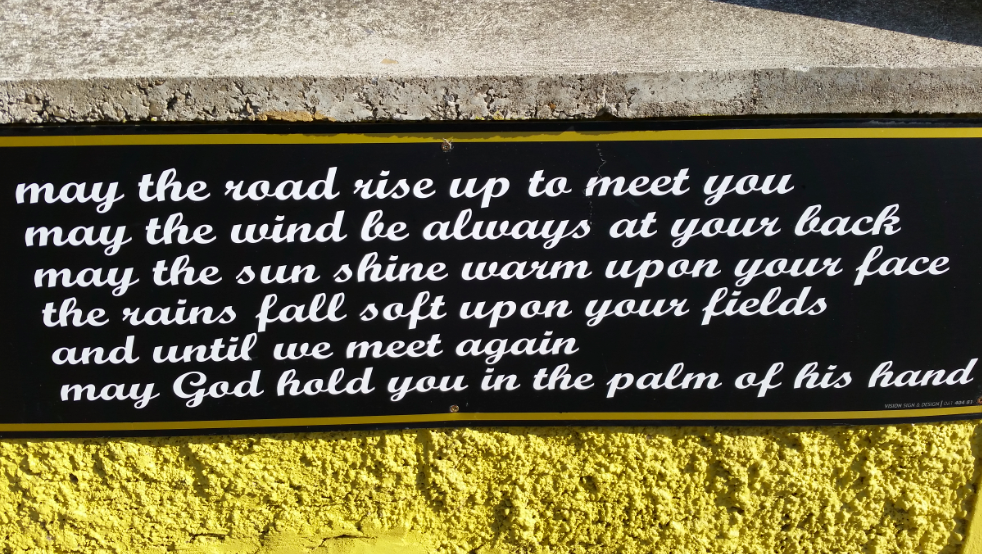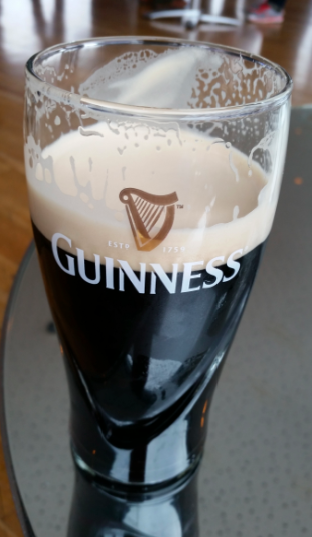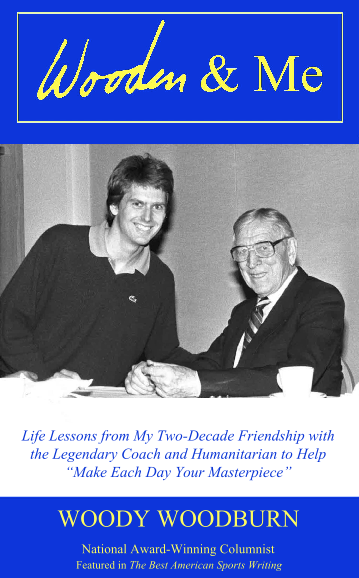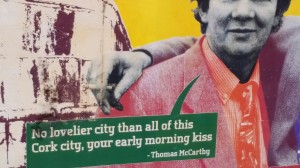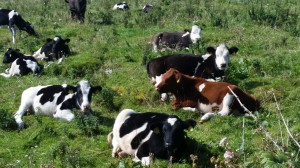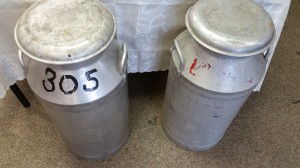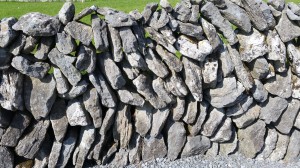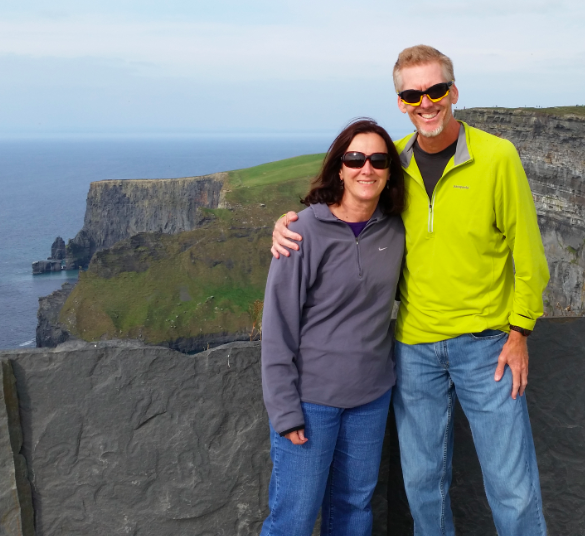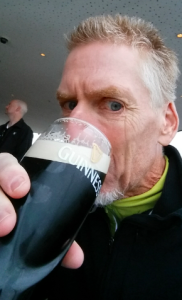Woody’s new novel “The Butterfly Tree” is available at Amazon (click here) and orderable at all bookshops.
*
“So, how Irish are you?” the bartender offered in greeting, his brogue thick as lamb stew and suggesting his own blood pulsed shamrock green.
The question was posed to an American tourist in Dublin, in a celebrated pub now named Kennedys (no apostrophe) but called Conway’s long ago when literary luminaries Oscar Wilde, Samuel Beckett, and James Joyce frequented it, and perhaps insisted on the use of an apostrophe, with the latter even featuring it in his epic novel “Ulysses.”
How Irish am I? Rather than offer a long soliloquy about my third great-grandfather emigrating from County Cork two and a half centuries past at age 14, forever leaving behind everyone he knew while fleeing famine for fertile farmland in Ohio, I answered succinctly by lifting my pants leg above my left calf.
The bartender nodded appreciatively and a moment later placed a pint of Guinness before me, proclaiming with enthusiasm: “On the house!”
The kindly reaction was attributable to the tattoo above my ankle, a fist-sized harp, Ireland’s national symbol—and trademarked logo of Guinness. I was inspired to get the body ink a decade ago while visiting my ancestral home for the first time and sensing the echoes of my distant relatives in the emerald hills of Cork.
Next evening at a different pub, this time unprompted, I wordlessly ordered a Guinness by displaying my tattoo and promptly received another free pour.
A third pub, a hat-trick complimentary black nectar, and I realized I had Willy Wonka’s Golden Ticket in my pocket—in my skin, rather. Indeed, for the entirety of our weeklong stay in Ireland, most everywhere My Better Half and I had drinks my initial Guinness was happily served gratis.
The best part of flashing my golden tattoo, black though it be, was not the free flow of stout—it was the conversations that flowed following the inked ice-breaker.
At Smithwick’s brewery in Kilkenny, for example, a bartender named Eoin affably asked if I had any Irish heritage. In reply, I showed my harp and shared the emigration story of my third great-grandfather James Dallas. Eoin poured us each a pint of a private reserve blonde ale not yet marketed and then surmised the surname Dallas might have originated from Daly’s Cross about an hour’s drive north of Cork.
Alternately, a barkeep at The Palace Bar in Dublin told me the Irish surname Daly is derived from the Gaelic Dálaigh, and that either version might have been “Americanized” to Dallas.
At the Irish Emigration Museum, also in Dublin, my inked harp gained deeper meaning when I learned this: on December 8, 1891, Samuel O’Reilly, an Irish-American, received U.S. Patent No. 464,801 for…
…the first electric tattoo gun.
Famed Irish poet William Butler Yeats once said of his motherland, “There are no strangers here; Only friends you haven’t yet met.” So it was in a lively pub, again in Dublin, when MBH and I accidentally crashed a 40th birthday party. No sooner had we found two empty stools at the far end of the bar when the husband throwing the celebration for his wife sidled over to us.
It was my birthday as well, a coincidence I shared, and instantly we were guests of honor as Liam introduced us to his wife, Marie, and their comely daughter and strapping son. After we had chatted like old friends for a good while, Liam told my wife: “You’re husband is the most American-looking American I’ve ever seen.”
With that, I revealed my ankle art.
“By god!” Liam sang. “You’re actually an Irishman! Sláinte (health)!”
* * *
Essay copyrights Woody Woodburn
Woody’s new novel “The Butterfly Tree” is now available in paperback and eBook at Amazon (click here), other online bookstores, and is orderable at all bookshops.
*
Woody writes a weekly column for The Ventura County Star and can be contacted at WoodyWriter@gmail.com. Follow him on Twitter and Instagram at @woodywoodburn.


